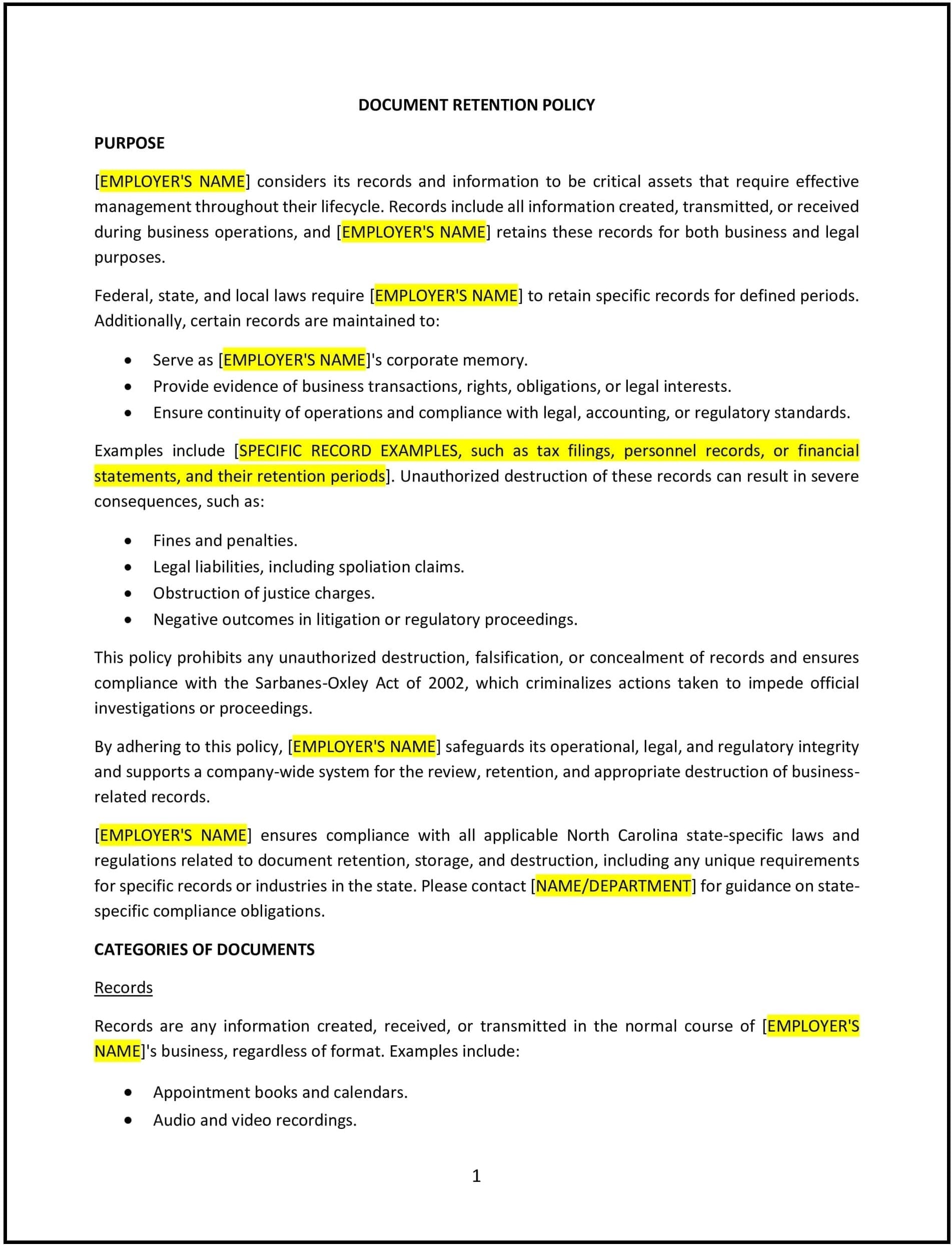Document retention policy (North Carolina): Free template
Got contracts to review? While you're here for policies, let Cobrief make contract review effortless—start your free review now.

Customize this template for free
Document retention policy (North Carolina)
A document retention policy helps North Carolina businesses establish a clear framework for managing the retention, storage, and disposal of company records. This policy outlines how long different types of documents should be kept, how they should be stored, and the procedures for securely destroying documents once they are no longer needed. The goal is to ensure that important business records are preserved while reducing the risk of retaining unnecessary or outdated documents.
By adopting this policy, businesses can enhance compliance with legal requirements, improve organizational efficiency, and minimize the risks associated with improper document disposal.
How to use this document retention policy (North Carolina)
- Define document types: Specify the types of documents that the company retains, such as financial records, employee records, contracts, and intellectual property documentation.
- Set retention periods: Establish retention periods for each document type, based on legal requirements, business needs, and industry standards. Ensure the retention period complies with North Carolina’s record-keeping laws.
- Determine storage methods: Specify how records should be stored, including whether they will be kept physically or digitally, and the security measures in place to protect sensitive data.
- Outline disposal procedures: Define the process for securely destroying documents once they have reached the end of their retention period, including shredding physical records and permanently deleting digital files.
- Reflect North Carolina-specific considerations: Ensure the policy aligns with North Carolina’s specific record retention laws, including any state mandates for certain types of business records.
Benefits of using this document retention policy (North Carolina)
This policy provides several benefits for North Carolina businesses:
- Complies with legal requirements: Helps businesses meet state and federal record-keeping regulations, reducing the risk of non-compliance and legal consequences.
- Reduces storage costs: Proper retention practices help eliminate the need to store unnecessary or outdated documents, reducing physical storage costs and streamlining digital storage systems.
- Improves data security: A structured document retention policy ensures that sensitive data is kept secure and disposed of properly, minimizing the risk of data breaches.
- Enhances organizational efficiency: With clear guidelines for document management, employees can easily access necessary records, improving overall business operations.
- Minimizes legal risk: A proper retention policy ensures that records are available when needed for audits, legal disputes, or compliance checks, reducing the risk of liability.
Tips for using this document retention policy (North Carolina)
- Communicate the policy clearly: Ensure that all employees are aware of the document retention policy and understand their role in managing records.
- Implement regular audits: Regularly audit document retention practices to ensure compliance with the policy and legal requirements.
- Provide secure storage options: Ensure that all records, especially sensitive or confidential data, are stored securely in compliance with data protection regulations.
- Review the policy regularly: The policy should be reviewed periodically to ensure it complies with North Carolina’s laws and reflects any changes in the company’s record-keeping practices.